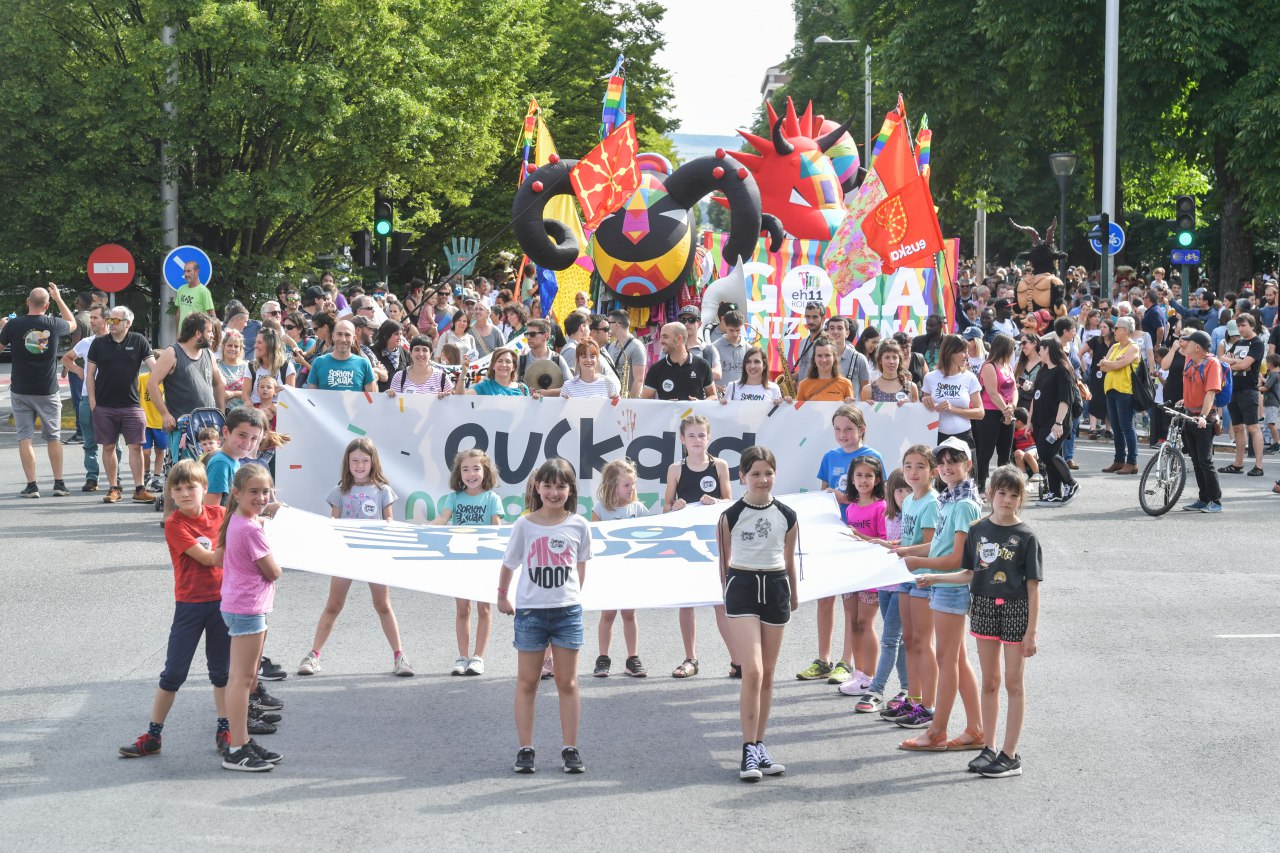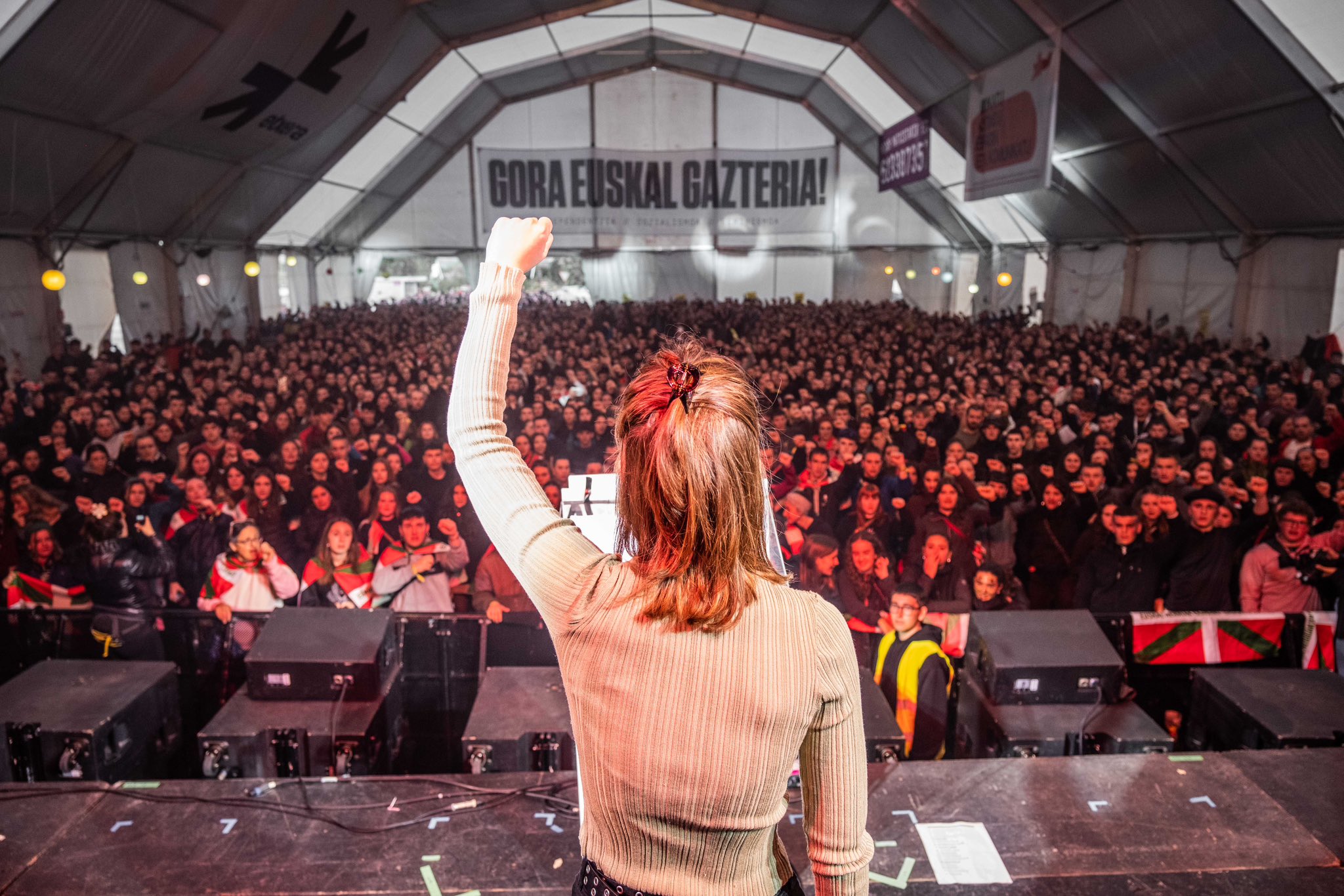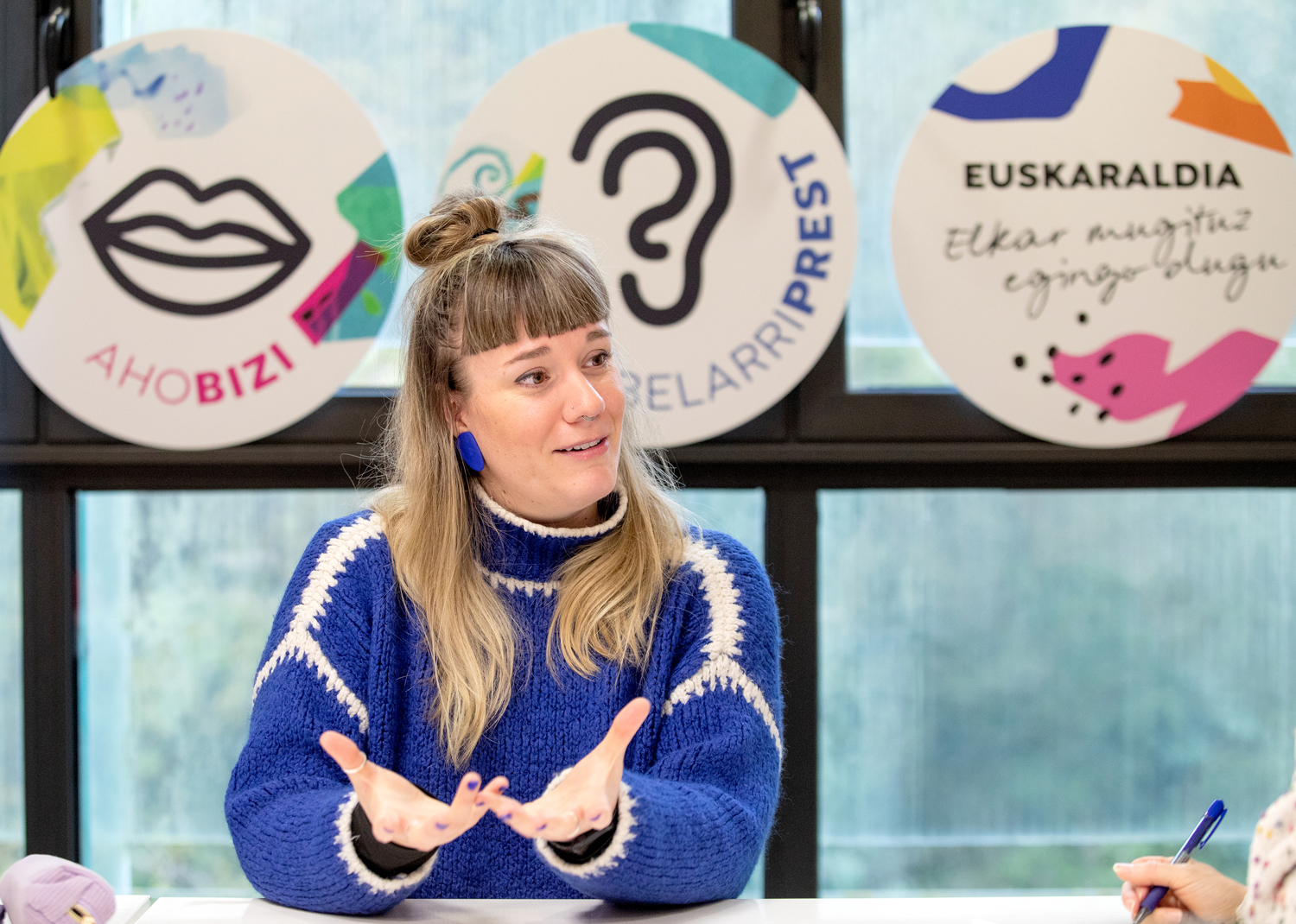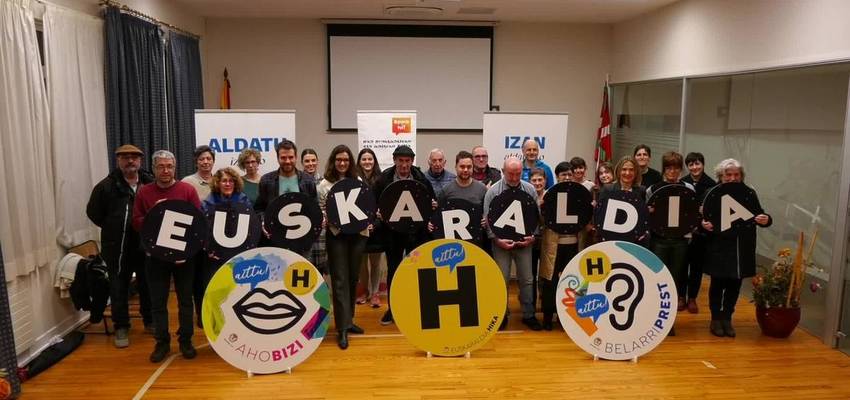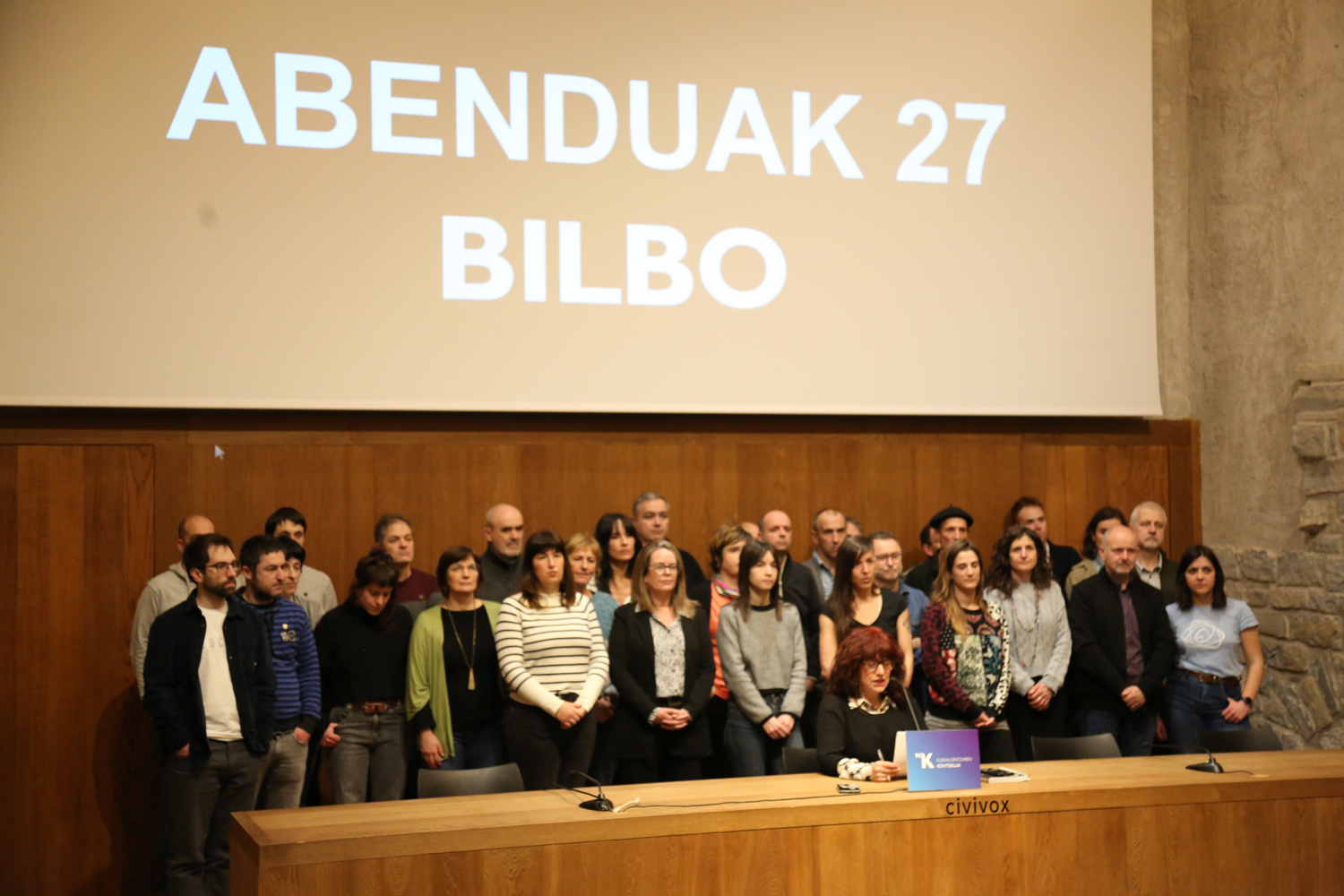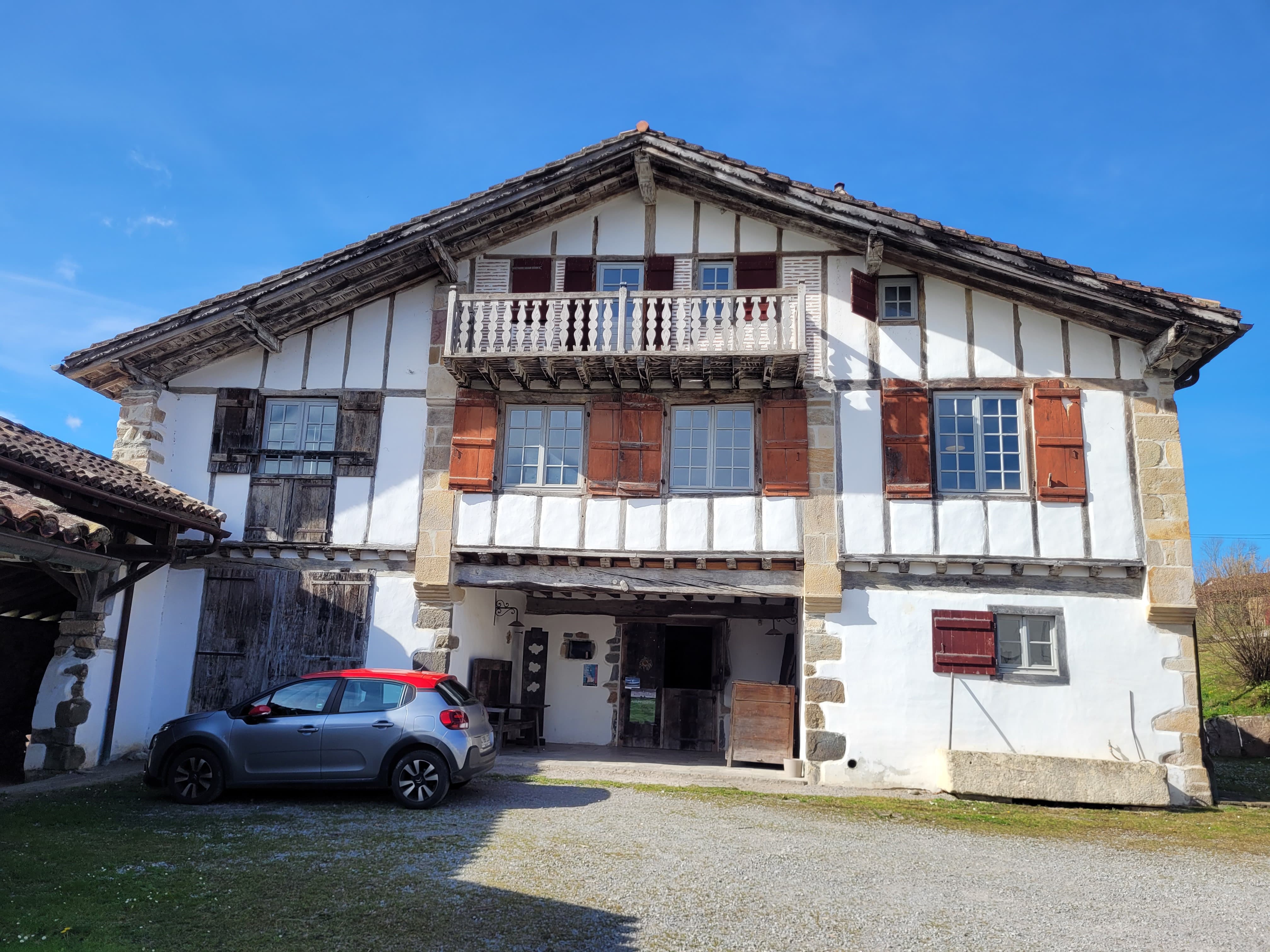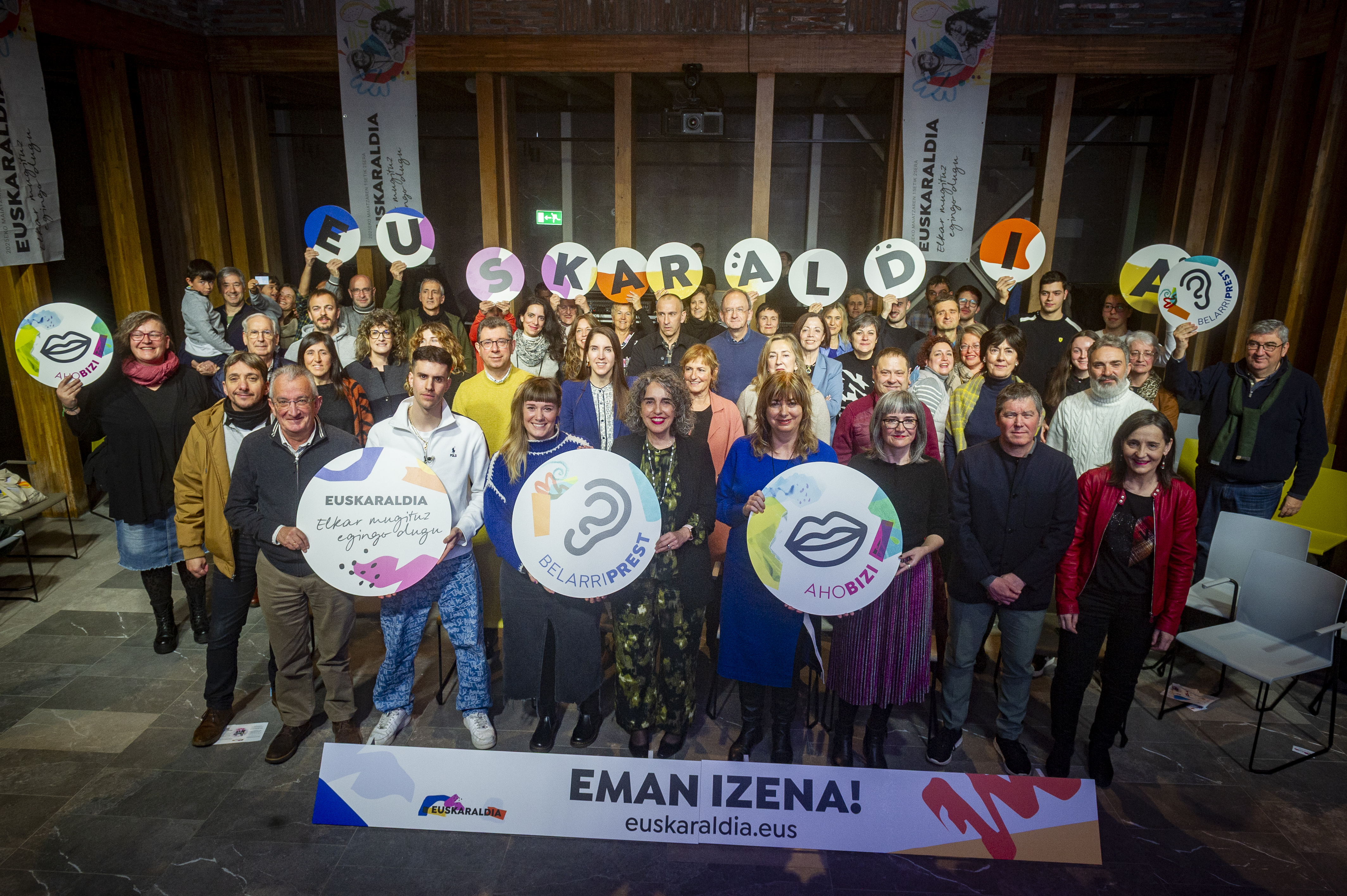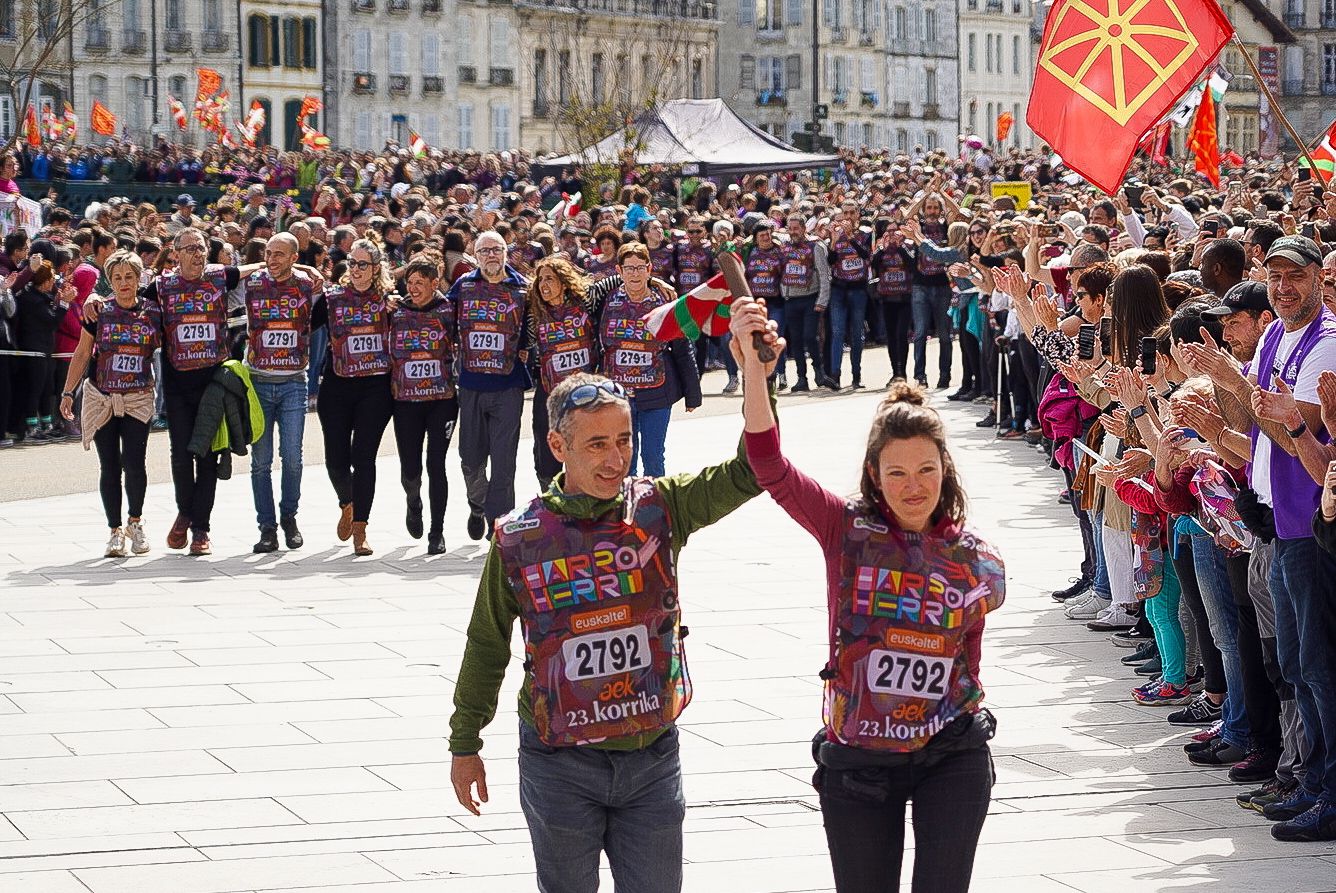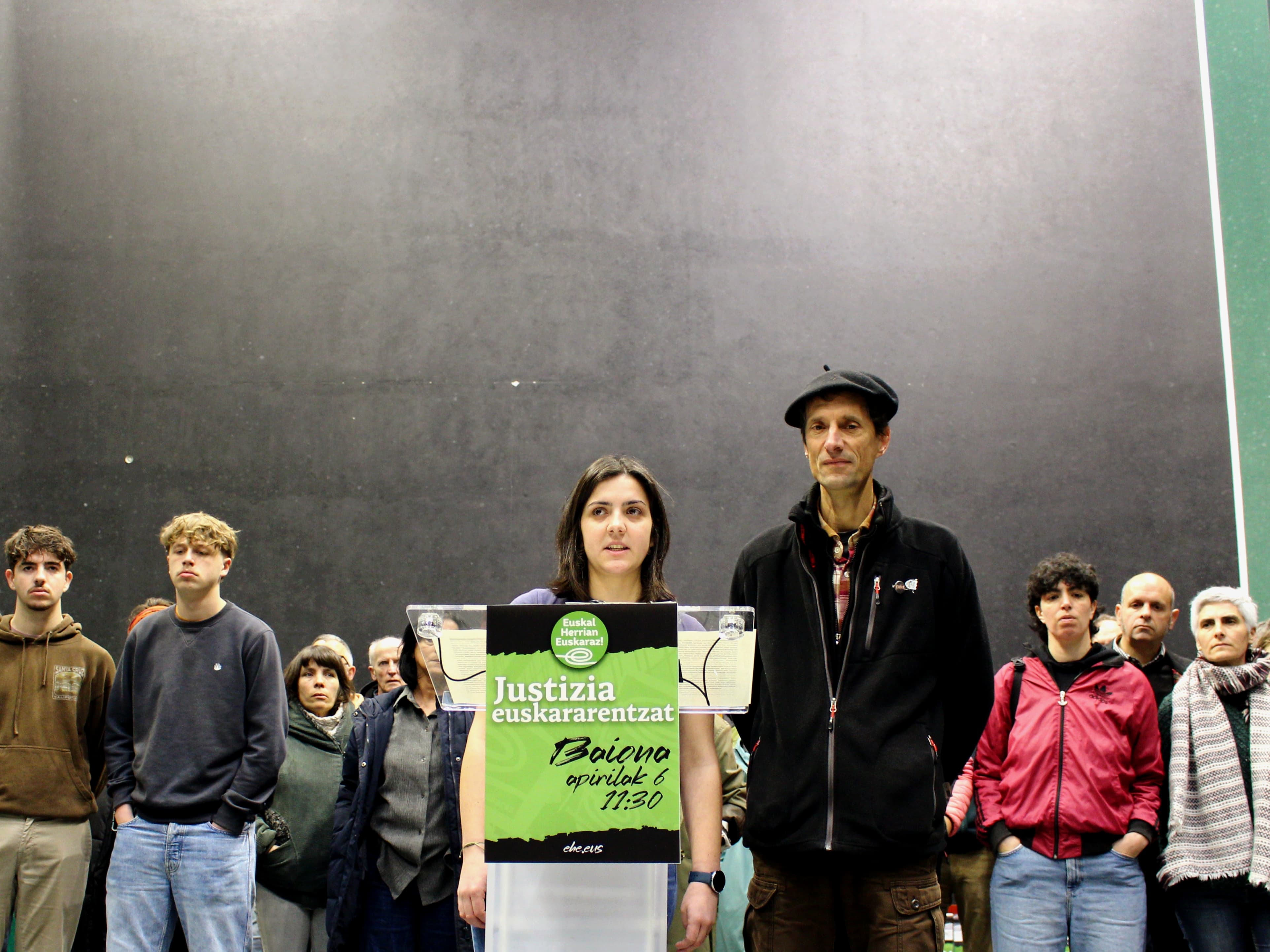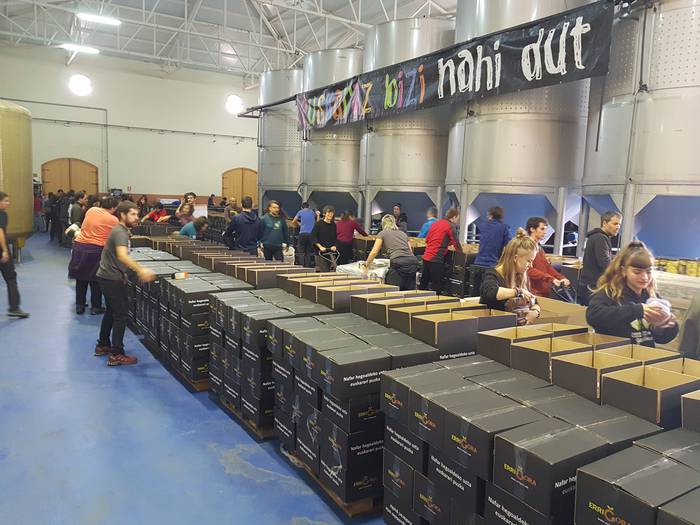Reading in feminism, with Euskera glasses
- I just read the book Genealogy feministak. But I cannot read the book without removing the Basque glasses I wear, I cannot read over and over again without establishing links (and disconnections) between feminism and Euskera, I cannot read more than once without feeling a harsh envy.
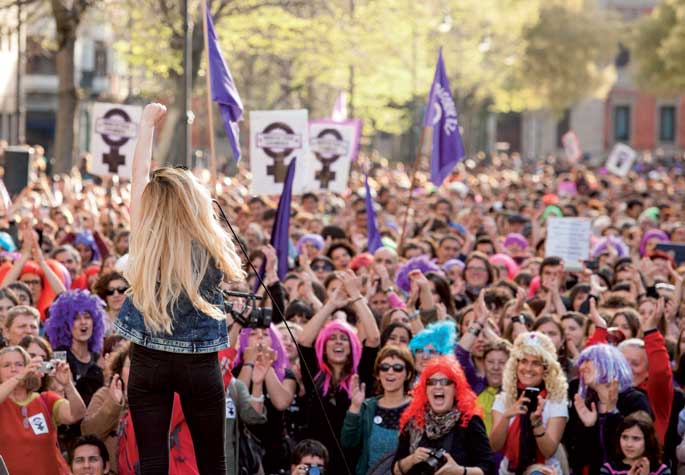
The book was written by Miren Aranguren, Edurne Epelde and Iratxe Retolaza. It facilitates the construction of a cuckoo in the bowels, in the corners, in the debates and in the practices of Basque feminism. And make connections with other movements.
Many of those who started in feminist groups approached them with rage, with the intention of responding to the oppression they suffered every day. However, once it began, these young people began to form according to the militancy: working with the discourses, sharing similar experiences, learning new theories and practices… For example, a member of the Iduna association of the Santutxu’s bilbaitary neighborhood says in the book: “I was aroused by the passion for working in the neighborhood, I’ve always been clear that I was a feminist. The chauvinist attitudes surrounding me, I have suffered discrimination since I was a young child, this I have carried inside. At that time, however, we didn’t have theorization on the subject, but we were rage, we wanted to do something.”
In Euskalgintza, however, I believe that not enough importance has been given to internal dynamics. In our environment there has been a lot of activism (there is! ), but it may be a little less to share reflections, discourse, internal visions, shared feelings, experiences. What drove us to work in Basque? With whom have we shared those feelings or experiences? What do we feel in the everyday working in Basque? What would we like to feel?
I haven't been in women's associations. In the associations of Euskera, yes. And in those cases, I have not perceived the possibility of talking about the problems we have as Basques, I have not detected that our problems are addressed, I have not perceived an internal reflection to digest and change our situation. At least in a systematic and organised manner.
The truth is that many of these groups of young girls, created by rabies, have had a short life. But in the book, there's more than one that recognizes that these groups have left a tremendous mark on them and have been indispensable in their future evolution. That is, they have been a “school” of feminism. I believe that these “schools” are also necessary, which will allow us to learn, invent and make mistakes.
Many feminist groups and associations have brought to the plaza in recent years, above all, transgression, freshness, spark… However, in our environment I have not seen it (here and there yes, but I do in general). Why are we so humiliated? Excessive dependence on the administration? Is the level of institutionalisation and professionalisation too high? Is the functionalization denounced by Koldo Izagirre?
But I come to examples. The book presents the debates and reflections that have taken place in the meetings of Basque women. In addition, there is a gap to the most playful part of the meetings: feeling of group, cohesion, friction, etc. However, the meetings of the Euskaltzales, and with exceptions, are of low salt, and today I find it difficult to imagine what is said in the book.
For years Euskalgintza has used work and direct action: the creation of the ikastolas, the creation of night schools, the plantations in universities, the days of suppression, etc. However, little has been done in recent years. Feminists, on the contrary, are increasingly present in their demands. We Euskaltzales have difficulty in getting the messages we want and direct actions can be a good way to spread them. Isn't it?
The history of Basque feminism, at least in recent years, is characterized by its plurality and dynamism: many associations and many lines of work have been opened in recent years. And that brings me back to the Basque world: after so many years, has no one ever thought, for example, of creating an association of Basque immigrants? Or the association of those who have learned Basque in general? Or a professional college of Basque technicians? Or any association that organizes the help of people who will live exclusively in Basque? Or ... Well, apparently, no. I would also like to bring something else to the brokerage: feminism has developed its activity in women’s organizations. But he hasn't forgotten half of society at all. And from the very beginning, and quite systematically, he's tried to create and feed speeches for them. However, in our environment, I have not seen any speech in recent years towards the Castilian parishioners (except for rebuke orders like “go to the Basque Country”). And if the Basques do not feed them, who has to feed them with the discourse in our favour?
I've spent a terrible envy reading the book. I would like for us the intensity, complexity and intuition that feminism has in recent years. I would very much like it. We have a lot to learn, we have a lot to see, a lot to do, a lot to deconstruct and a lot to unlearn. And, as far as possible, together.
Bilbon eginiko aurkezpenean iragarri dute ekitaldia, euskarari "arnas berri bat emateko eta behar duen indarraldia gorpuzten hasteko" lehen urratsa izango dela nabarmenduta. Euskaltzale guztiei, baina, oro har, "justizia sozialean eta gizarte kohesioan aurre... [+]
Euskaraldiaren hamaikakoa aurkeztu dute Nafarroan: Julio Soto bertsolaria, Edurne Pena aktorea, Julen Goldarazena musikaria (Flakofonki), Claudia Rodriguez Goxuan Saltsan taldeko abeslaria, Eneko Garcia (Albina Stardust), Yasmine Khris Maansri itzultzaile eta kazetaria,... [+]
Euskalgintzak Senpereko Larraldea etxea faltan botako du. Uda gabe, Bertsularien lagunak, bertan gelditzen den azken elkarteak, lekuz aldatuko du eta etxea hetsiko dute. Euskararen, euskal kulturaren eta arteen ohantzea izan da Larraldea, urte luzetan Andoni Iturrioz mezenasak... [+]
Horra Libération egunkariak berriki argitaratu duen idazkia:
“Bayonne” bukatu da, Libérationek “Baiona” idatziko du
Hiri baten izenaren erabilpena ohiturazkoa delarik, egunkari batean izen horren erabilpena aldatzea zaila da. Alta, irakurleen... [+]
Gasteizen egin duten ekitaldian ireki dute izen ematea, laugarren edizioa hasteko bi hilabete falta direla. Erakundeetako ordezkariak, herritarrak eta entitateetako kideak agertu dira, besteak beste. Euskaraldiaren koordinazioa Euskal Herriko erakunde publikoen eta Taupa... [+]
Korrikaren "bihotza eta burua" erakutsiko ditu dokumentalak. Proiektua gauzatzeko, herritarren babesa "ezinbestekoa" izango dela adierazi dute AEK eta Mirokutana ekoiztetxeak, eta apirilaren 25era bitartean crowdfunding kanpaina bat abiatuko dute jalgihadi.eus... [+]
25 bat eragilek adierazi diete elkartasuna apirilaren 11n Baionako auzitegian epaituko dituzten Intza Gurrutxaga eta Gorka Torre Euskal Herrian Euskaraz taldeko kideei. Egun batzuk lehenago, apirilaren 6an Baionan eginen den manifestazioan parte hartzeko deia ere luzatu dute.
Martxoaren 10etik 26ra izango da udaberriko kanpaina. 'Beste modura, denona de onura' lelopean arituko dira gertuko ekoizpena, banaketa eta kontsumoa babestu eta sustatzeko, ager zonaldean euskara hauspotzen duten bitartean. Apirila amaieratik aurrera jasoko dira... [+]
Otsailaren 28an Hendaian eman dio hasiera kanpainari Herri Urratsek. Euskararen transmisioa bermatzen duen Seaska babestea da helburua.












